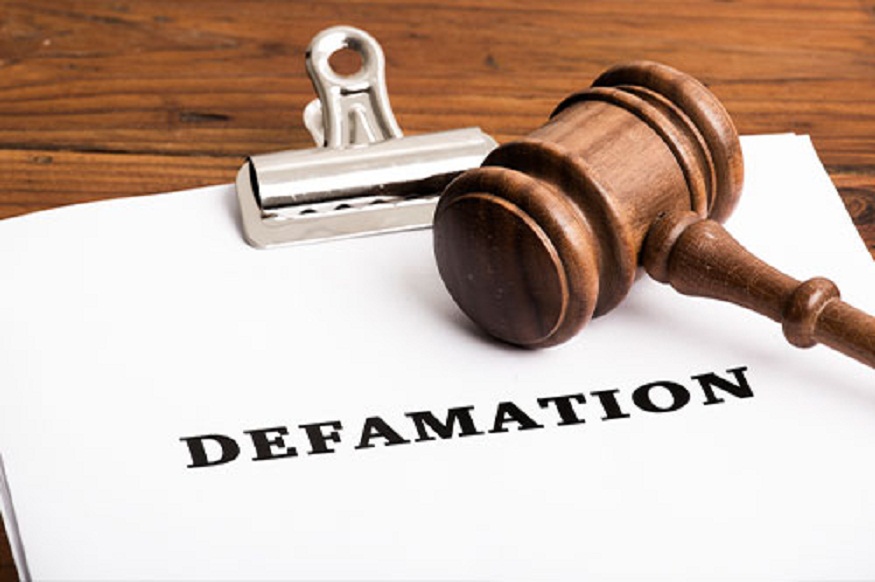The Internet and social networks are formidable vectors of freedom of expression. But this freedom is sometimes abused, which is harmful to the people targeted by public declarations.
So what should you do when someone publicly spreads false rumors and false allegations, the consequences of which can sometimes be serious? What are your recourses?
Defamation ranks among the offenses affecting the honor and reputation in the same way as insult and slanderous denunciation. It is repressed by the law of July 29, 1881 which applies to any publication made via the internet or through the traditional press and whose purpose is to define the limits of public expression.
When you think you are the victim of online defamation, it is necessary to react quickly, to the extent that the law of 1881 provides for a relatively short period of 3 months to react against press offenses, from the day of broadcast remarks.
It will then be necessary to demonstrate that the conditions for defamation are met in order to request the withdrawal of the disputed comments and possibly prosecute the author of these comments. It is strongly recommended to be accompanied by a lawyer specializing in press law who can assist you in filing a complaint and allow you to take action before the civil courts to obtain compensation.
How to characterize defamation?
Article 29 of the law of 1881 thus provides that “Any allegation or imputation of a fact which harms the honor or consideration of the person or body to which the fact is attributed is defamation. Direct publication or reproduction of this allegation or imputation is punishable, even if it is made in doubtful form or if it targets a person or body not expressly
Imputation of a personal fact
There is therefore defamation when a third party reports the existence of a fact of which he or she has personal knowledge or not, and even if he or she simply repeats allegations revealed by another.
Concretely, this means that one can be guilty of defamation by posting a false publication, or simply by republishing a false publication posted by another, regardless of how the remarks are made. The offense may be committed whether the remarks are formulated in an affirmative, interrogative, conditional, hypothetical manner, or whether the facts are simply insinuated. On the other hand, there will be no defamation if it is only the expression of an opinion or a value judgment (a vague statement, a general consideration).
It must be the expression of a personal fact: the victim must be able to complain, individually, of being personally defamed (but it can be a natural person or a
Imputation of a specific fact targeting an identifiable person
This victim must therefore be able to be identified: it matters little that the defamed person is not expressly named, if the terms used by the culprit make identification possible (it is not necessary for everyone to be able to identify the victim, it suffices example that it can be in the social or professional environment in question).
Finally, the alleged fact must be precise, this is what makes it possible to distinguish defamation from public insult. Simply put, this means that if the assertion denounced is capable of being verified or not (possibly denied), it could be qualified as defamation. It makes no difference whether the fact is accurate or not. But it must be harmful and undermine the honor or consideration of the victim. These are considerations that are assessed on a case-by-case basis, honor and consideration being human feelings that must be placed in a context.
How to react to defamation?
Once defamation has been established, it will be necessary to act in the field of criminal law as well as in the field of civil law to obtain, on the one hand, the withdrawal of the contentious remarks and on the other hand, the conviction of the author and compensation for the damage. that you may have suffered.
Take criminal action
When we are in a case of public defamation, it is a criminal offense which can be punished by a fine of 12,000 euros (which can be increased up to 45,000 euros in the event of aggravating circumstances). You can therefore file a simple complaint, whether or not you know the author of the comments, either by going to the police station or the gendarmerie, or by sending a registered letter with acknowledgment of receipt to the Public Prosecutor.
Take civil action
You can also file a complaint with civil action, in order to avoid the dismissal of your file, in particular when the identity of the author of the remarks is not known. This must be sent directly to the investigating judge who will carry out an investigation.
When the defamation is carried out in a newspaper, it will be necessary to file a complaint against the director of the publication. It is then imperative to keep a copy of the publication containing the defamatory remarks.
If you know the author of the remarks, and they are made online (remember to keep screenshots), you can then sue him directly by filing a complaint against him or by directly seizing the criminal court by means of a direct citation, thus avoiding the investigative stage of the investigating judge.
The identification of the author and the request for reparation
Before the civil courts, the lawyer specializing in press offenses will be able to enable you to quickly obtain the deletion of the contentious comments by way of summary proceedings, in other words by an accelerated procedure, if the situation requires it.


